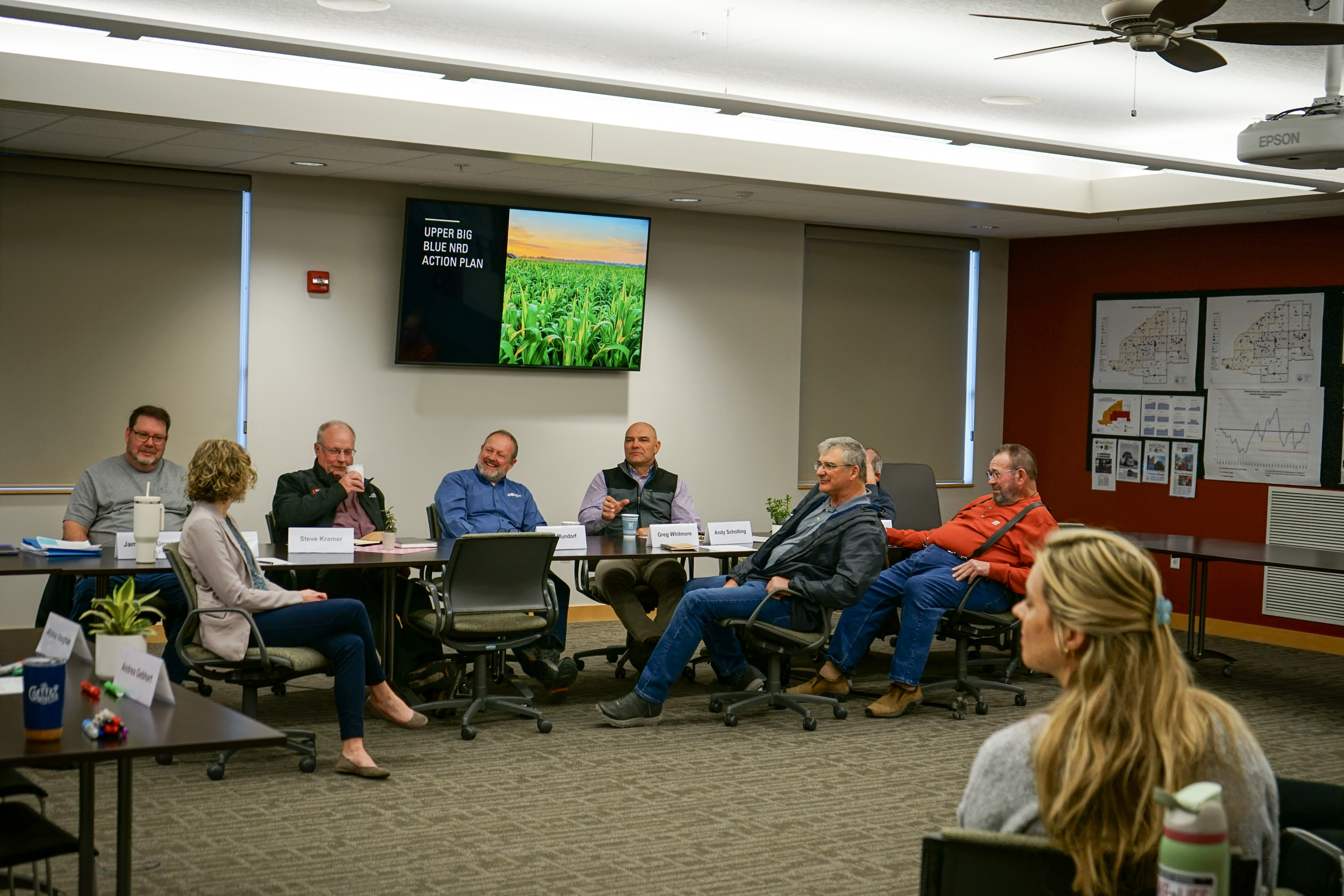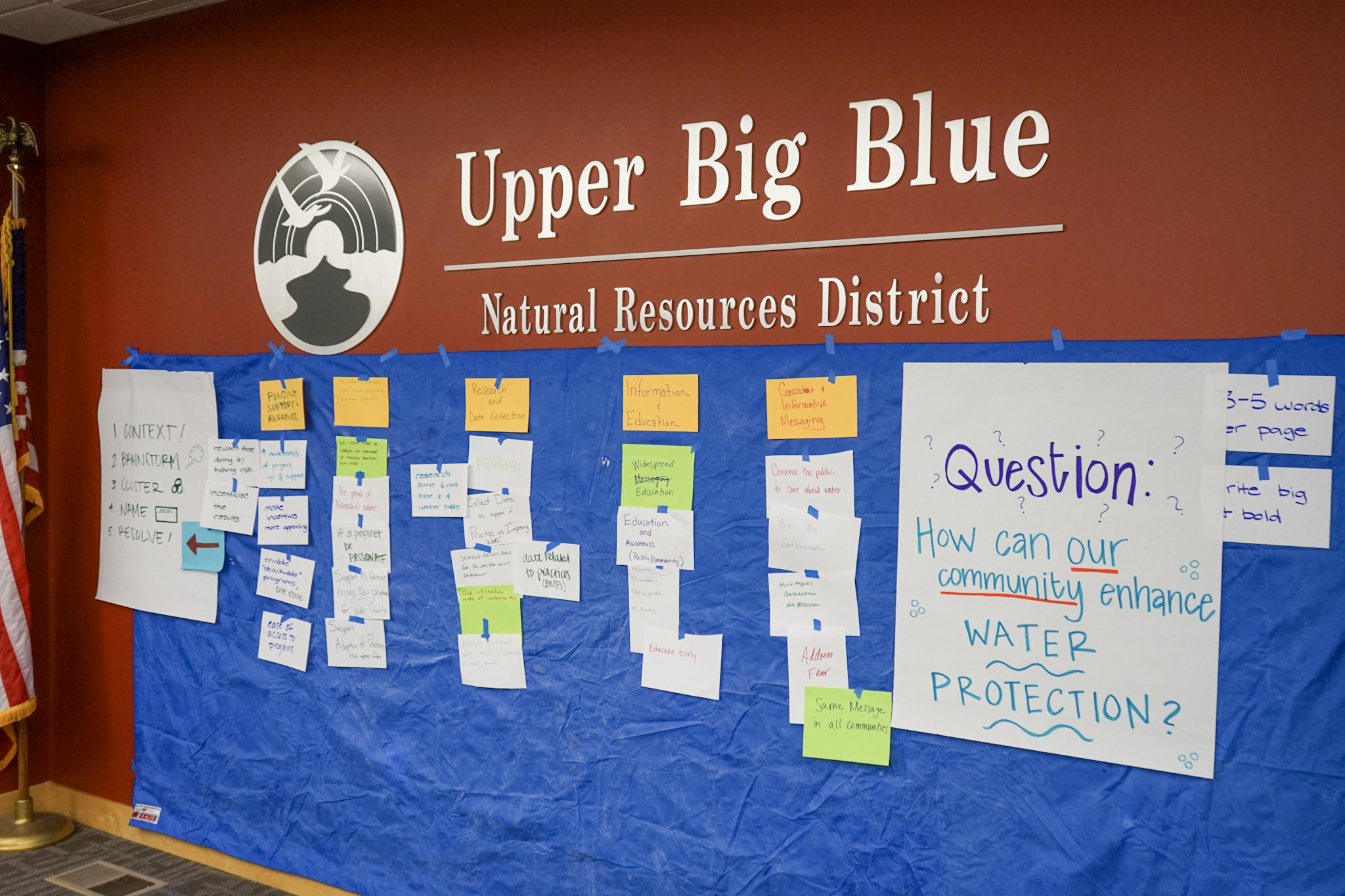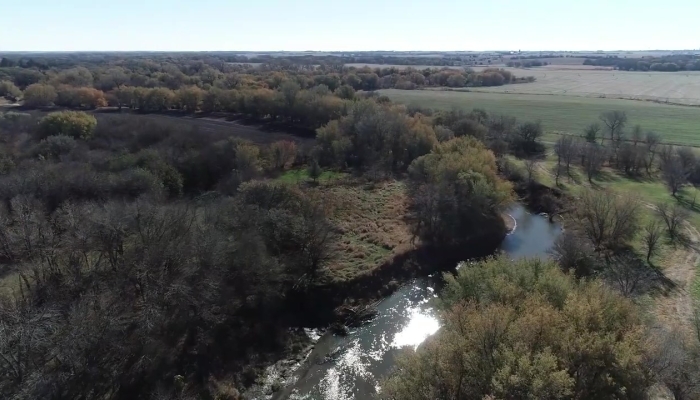Pride in Nebraska’s Water
Water Quality Stakeholder Event Held
How do we educate people on local water quality concerns and strategies for improvement? Are there solutions that are good for farmers and good for the broader community? And most importantly, how do we build trust and collaboration around these issues so that we are all working toward the same goal?
These and other questions were discussed at a recent stakeholder meeting on water quality hosted by the Upper Big Blue Natural Resources District. This type of meeting is required every five years in accordance with the district’s action plan.
More than 20 attended the day-long event at the NRD office in York. Attendees came from across the district, from Hastings to Seward and places in between. They represented many sectors and demographics within the district including healthcare, agriculture, banking, and municipal water systems. Many shared personal stories about water quality and its impact on their lives or their neighbors’. One thing they all had in common was an interest in maintaining the quality of the water in this district. A main goal of the day was to improve the relationship between all parties represented at the meeting, recognizing that each has a role to play in protecting Nebraska’s essential water resources.
The event included an update from NRD staff on water quality over the past few decades in the district and a review of the current rules and regulations around this topic. Staff asked attendees: are the current rules sufficient to address the problem, or are there new ideas that the Board of Directors should consider? Two members of the NRD board were in attendance as spectators, but did not participate in discussion, as their role was to listen to others’ ideas only.
There were many questions asked by participants, including what are the acute and long-term impacts for human health of drinking water that has impaired quality due to contaminants such as uranium, selenium, and nitrate? What can be done to remediate for water quality impairments, and what can be done to prevent further contamination?
Several in attendance discussed the challenges of those connected to the agricultural industry, either as producers, bankers, or fertilizer and equipment salespeople, in finding the balance between sustainability and profitability. In order to see a real change in agricultural practices that harm water quality (such as over application of nitrogen fertilizer), attendees suggested it will take system-wide reform that refocuses the conversation in agriculture to profit per acre instead of yield goals. Attendees discussed the need for more precision agriculture solutions such as fertigation, as well as funding for practices like cover crops and filter strips.
Part of the day’s discussion also involved education and outreach. What are the best ways to reach those in the agriculture industry, as well as those working in municipal water supply, those with private wells, and the general public on water quality topics? How do we measure what’s working? And how do we increase the trust that all parties have in each other and in the NRD?
The final takeaways from the event were that the future of Nebraska’s water resources depends on collaboration and that all who call this state home should be proud of Nebraska’s water and work to protect it.
The stakeholder meeting was organized and moderated by JEO Consulting, who will summarize the day’s conversations for NRD staff to incorporate into the district’s update to the groundwater action plan, which will go before the NRD Board of Directors for review.



